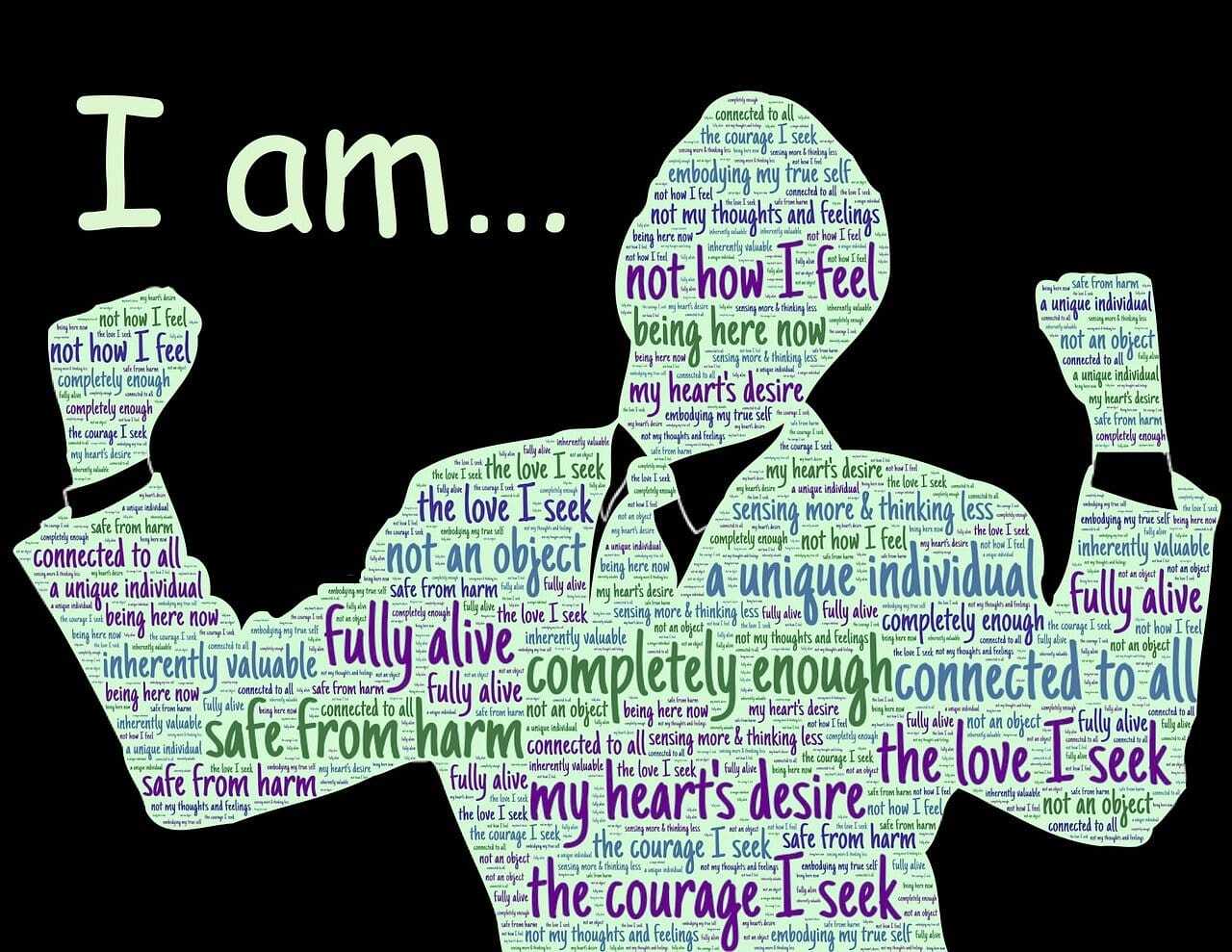Self-confidence and self-esteem are essential to personal development and success. They give people the power to become effective leaders, make their fortunes and promote ideas. But, in fact, many people lack self-confidence and suffer poor self-esteem. This reduces their progress as well as impacting on the quality of life overall Such times hypnotism for self-confidence and self-esteem can be a great help in personal transformation.
What is self-confidence?
This article examines the distinction between it and self-esteem, its difficulties, and how hypnosis can help resolve these impediments. So come with me as we explore the wondrous realm of hypnosis and learn to be your own best self.
Self-Confidence vs. Self-Esteem: Understanding the Difference
What is Self-Confidence?
Confidence in one’s abilities, judgment and decisions is called self-confi dence. To have confidence, even amidst obstacles and defeat. Self-confident people are not afraid to make mistakes, because they know that failures provide educational opportunities. On the contrary, self-confidence has nothing to do with being the most talkative or extroverted person in a room. It can be found in people who are quiet and reserved, but at the same time very confident about themselves.
What is Self-Esteem?
Self-esteem is an individual’s estimation of themselves. Those with high self-esteem see their intrinsic worth and do not constantly feel the need to prove themselves. Having high self-esteem means being more likely to get involved in healthy relationships, taking calculated risks and not giving up when things don’t work out. This self-esteem is used as a filter through which people view the world, their choices and relationships. However, low self-esteem can make people more vulnerable to criticism and negative events and personalizing failures.
Although self-esteem and self-confidence are different concepts, they overlap considerably. This lack of confidence and self-esteem leads to people running away from their past, afraid that others will judge them; it makes many men resist even thinking about the fact they’ve screwed up. On the other hand, high self-confidence and selfesteem lead people toward a life they want: They accept opportunities when chance presents itself, facing challenges with persistence.
The Lack of Self-Confidence and Low Level Of Self Estem
Self-esteem and low self-confidence can result from numerous causes, some of which that were present in childhood. A fragile sense of self-worth during youth makes it particularly easy to suffer long term repercussions from even a single bad event. Some common experiences that may contribute to low self-esteem include:
Bullying: Victims of bullying often lose self-esteem, feeling totally worthless.
Abuse: This is because physical, emotional or sexual abuse can damage someone’s self-esteem and make them feel like they are not good enough.
Overbearing or demanding parents: Pressure from parents to fulfil unattainable standards is harmful to self-confidence and makes students feel unwelcome.
Unrealistic expectations from authority figures:
Unrealistic expectations from your coach, teacher or boss can corrode self-esteem and confidence.
Critical comments from role models: The hurt from a single negative remark by an otherwise encouraging role model can have long-term effects on self-esteem.
Societal pressure: In a society obsessed with correlating achievements and self-worth, childhoods spent striving for recognition from the outside can wear away at inner worth.
Media influence: Media that glorifies perfection inspires unrealistic ideals which invariably damage self esteem.
It must be understood that these factors are not the fault of an individual with low selfesteem or selfconfidence. They are external factors that affect one’s assessment of self-value.
The After-Effects of Low Self Confidence and Low Self Esteem
Self-confidence and self-esteem are two major obstacles on the road to success. Those deficient in these qualities will find it especially difficult to get along with others, they are liable to be highly sensitive to criticism and may have a fear of failure. These consequences can slow down what we call networking, prevent business development and hamper the establishment of sincere relationships.
What’s more, people with poor confidence and self-image easily use failure or criticism as an excuse to quit. They often become paralyzed by indecision, afraid they will make the wrong decision. Such passive waiting can make people frustrated and give the impression among partners, friends or family members that you simply don’t want to do things.
Fortunately, low self-confidence and self-esteem can be helped. Although the nature of these negative traits may be deeply seated, hypnosis provides a rewarding and accessible approach to cultivating self-love, self-confidence as well as atal esteeem.
Understanding Hypnosis: A Gateway to Self-Transformation
Hypnosis is a highly focused state of relaxed awareness, which enables people to access the power of their subconscious mind. Hypnosis is not sleep as many believe. Actually it induces a deeply relaxed, highly suggestible state in which people are more receptive to affirmations and positive suggestions.
Hypnotherapy (the use of hypnotism for treatment) can be a valuable aid in overcoming timidity and low self-esteem. It allows people to rethink traditional beliefs, break negative habits and patterns, and develop a healthy self-image. Making use of the subconscious mind, hypnosis helps to turn new concepts into internal ones through rewiring neural pathways–achieving this can be hard in a waking state.
How hypnotherapy assists in the increase of self-confidence and self-esteem
Hypnotherapy uses a variety of methods to boost self-confidence and self esteem. These techniques are carried out while people are in an hypnotic trance state, allowing for profound investigation and transformation. Some of the most effective techniques used in hypnotherapy for confidence include:
Memory Regression
Often, low self-esteem has its source in bad or traumatic experiences from the past which have not been worked through. Under hypnosis, therapists guide individuals back to the nightmarish memories and apply therapeutic interventions. For example, people may be told to envision counseling and advising their own younger selves, creating a sense of fighting spirit in self and letting go of past heavy burdens.
Reevaluating
A shared characteristic between low self-confidence and self-esteem is that people tend to highlight past failures while playing down their accomplishments. A well-conducted hypnotherapy session can lead people to recognize their good attributes, abilities and accomplishments. Thereby, people can reframe self-evaluation and better perceive their own value.
Anchoring Resource States
The technique of anchoring allows people to set off positive outcomes. In hypnotic trance, people are led into a state of confidence, strength and self-assurance. They are then told to construct an anchor for those uplifting feelings. This anchor can be a phrase, an actual place or gesture. In future circumstances, activating the anchor will elicit a sense of confidence and self-esteem.
Hypnotherapy to treat low self-confidence and poor self esteem usually consists of an initial assessment, a number of treatment sessions and post-treatment support. When therapists induce a hypnotic trance in the sessions, they guide patients into deep relaxation and enhanced awareness. These are therapeutic techniques, including suggestions, future pacing,” memory regression and emotional release that promote positive change.
The number of hypnotherapy sessions that are required differs from person to person. While some people will see big improvements after just a few sessions, others may require several years of treatment.
Hypnotic suggestions used in hypnotherapy for confidence and self-esteem might include:
I affirm and appreciate my numerous strengths and successes.
I can overcome difficulties and accomplish what I want to do.
I deserve love, success and happiness.
Hypnotherapy can reprogram the subconscious mind through empowering suggestions, releasing self-limiting beliefs and enabling people to release their true potential. It helps develop high self confidence and good quality of life for oneself or others as well encouraging individuality among children.
Conclusion: The Power of Hypnotherapy: Self-Transformation
This lack of self-confidence and low regard for oneself can be a big obstacle to personal development, relationships, career success. But hypnotherapy can help to free people from the clutches of negative thoughts and self-doubt. Hypnosis unlocks the resources of the subconscious mind and helps people to restructure their inner dialogue, relinquish past burdens, and develop a new perception through self-image.
For anyone who doesn’t feel good about herself, take a look at the possibilities of hypnotherapy. Conducted over a number of sessions by an experienced hypnotherapist, you will be released from your cruelest jailer There is no longer any need to feel insecure or afraid.
You will feel even more confident in your new life, full of possibility. Begin your road to self-transformation with hypnotherapy right now.







